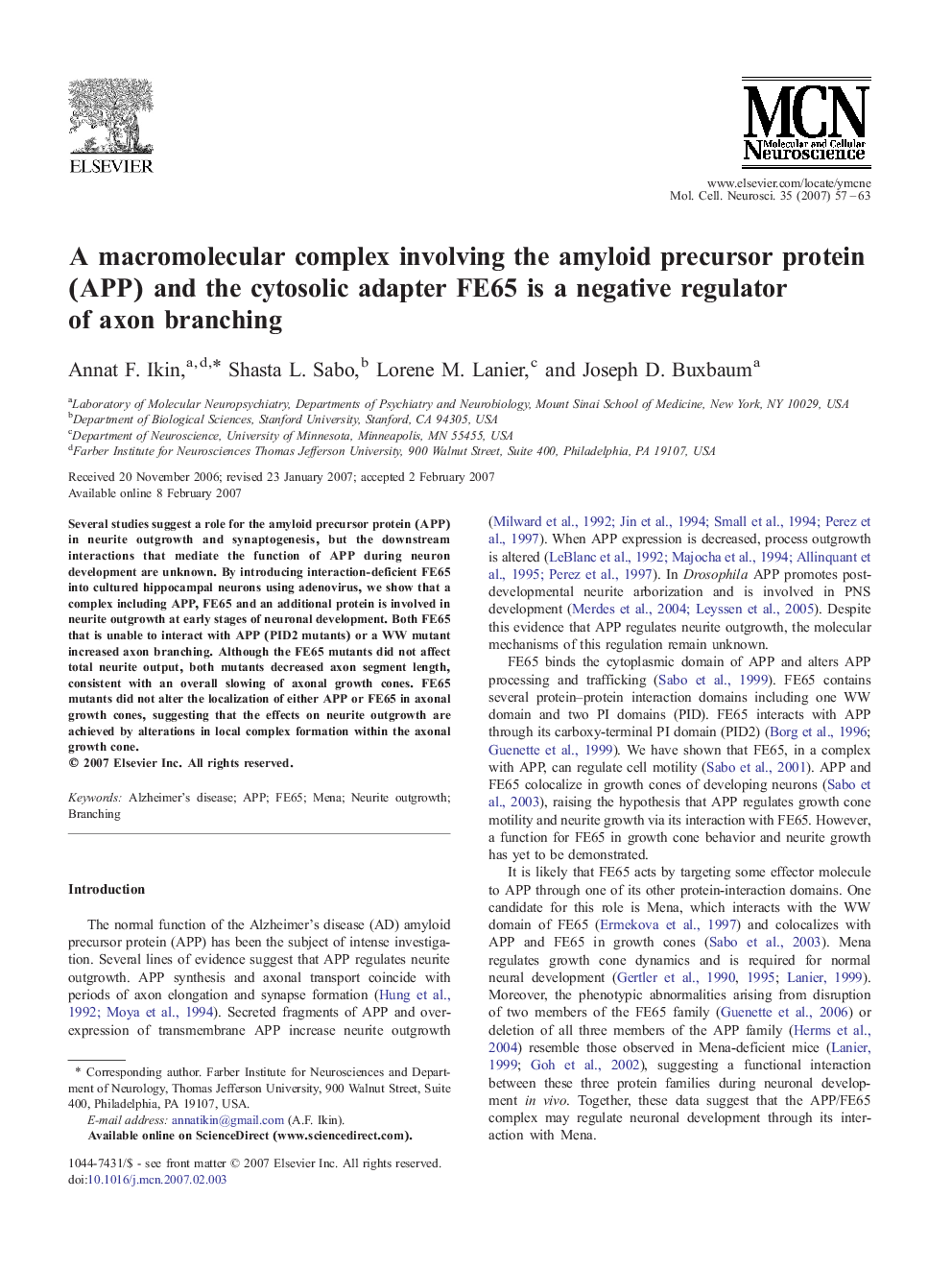| Article ID | Journal | Published Year | Pages | File Type |
|---|---|---|---|---|
| 2199465 | Molecular and Cellular Neuroscience | 2007 | 7 Pages |
Several studies suggest a role for the amyloid precursor protein (APP) in neurite outgrowth and synaptogenesis, but the downstream interactions that mediate the function of APP during neuron development are unknown. By introducing interaction-deficient FE65 into cultured hippocampal neurons using adenovirus, we show that a complex including APP, FE65 and an additional protein is involved in neurite outgrowth at early stages of neuronal development. Both FE65 that is unable to interact with APP (PID2 mutants) or a WW mutant increased axon branching. Although the FE65 mutants did not affect total neurite output, both mutants decreased axon segment length, consistent with an overall slowing of axonal growth cones. FE65 mutants did not alter the localization of either APP or FE65 in axonal growth cones, suggesting that the effects on neurite outgrowth are achieved by alterations in local complex formation within the axonal growth cone.
